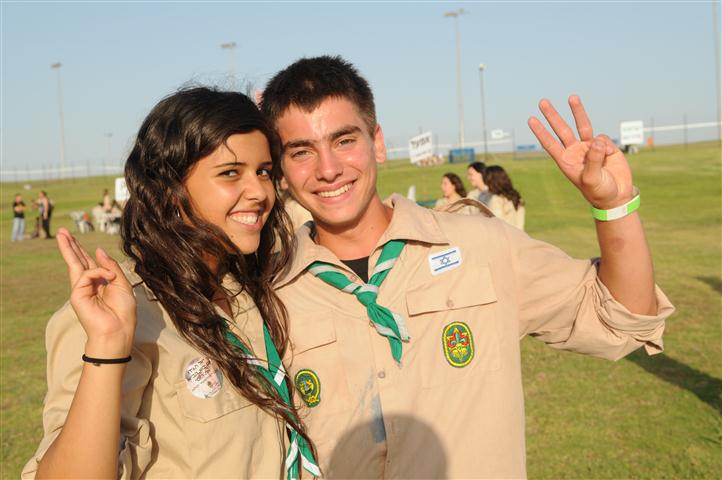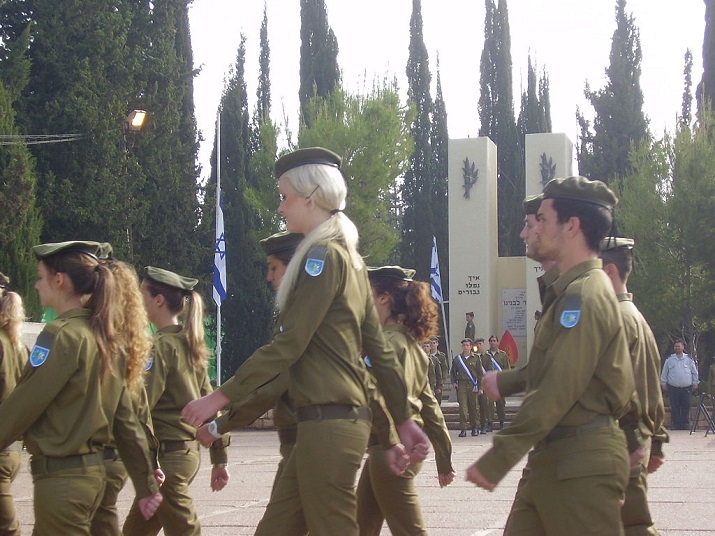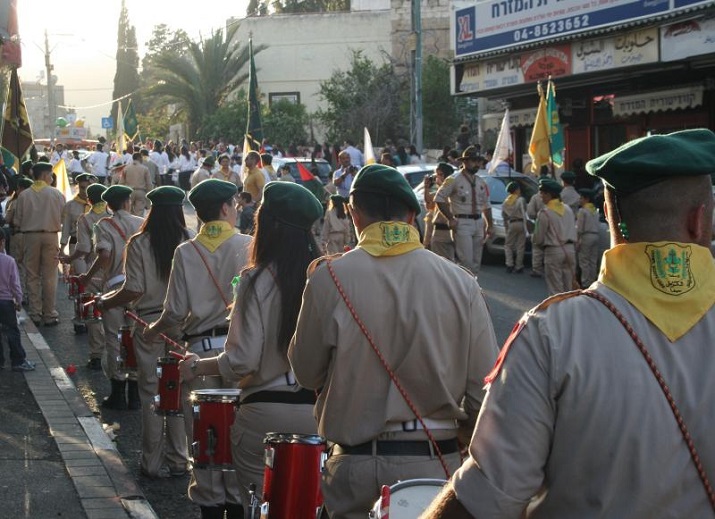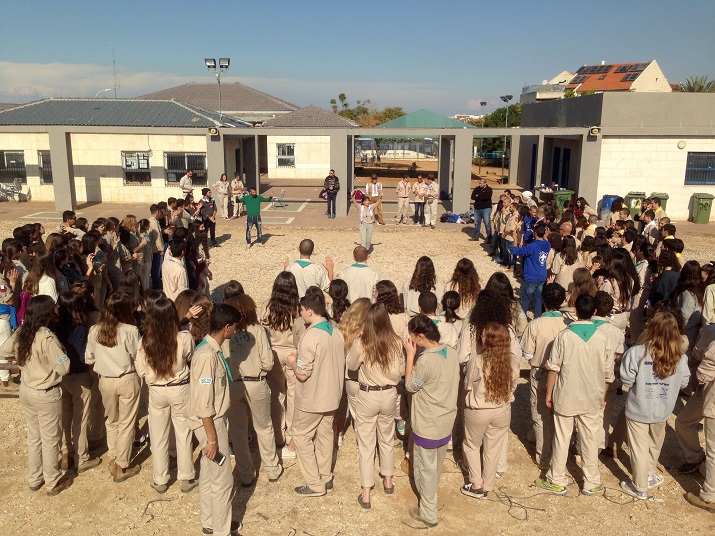
Israeli scout uniform Wikimedia Commons / Wikimedia Commons
This is a piece by AFSC's Israel Program coordinator, reflecting on Memorial Day and how militarism is culturally transmited to young people in Israel.
Once a year, on the Israeli soldiers' Memorial Day, students who graduated in the past few years go back to school for a day. Most of them in uniform, some already after finishing their military service, go back to school for the memorial ceremony led by the 12th graders – tomorrow’s soldiers.
Once a year, for the past 8 years, I go back to my school. I always arrive as the ceremony ends, and hundreds of students in white shirts and blue jeans and soldiers in green, khaki and white uniforms, some with assault rifles, leave the school. Once a year, I go back to being a school girl as my history teacher gathers her students from the past decade or so to talk.
We talk about politics. We also talk about philosophy, literature, and identity. But mostly politics. The choice to have this conversation on Memorial Day, straight after the ceremony, might have been just practical as so many former students are at school anyway, but it has its effect. The entire day, and so the entire conversation, is set to a very specific tone.

The school I studied in is home to a very specific demographic: mostly white, upper-middle class, classic Zionist left -- values driven people who understand social structures and economic gaps and will probably end up writing about them in the academy; people who are disgusted by racism and religious fundamentalism and believe strongly in a Jewish and democratic state; people who are obviously against the Israeli occupation while finding their way into the most elite military units.
Sitting in a room with fewer than 30 people, of which three are active duty officers, six active duty intelligence soldiers, and at least five combat reserve service soldiers, being the only person in the room who wasn’t, isn’t, and isn’t going to be a solider, is always an interesting experience.
The conversation started with poems and literature quotes, then quickly turned to more familiar tracks. A 23-year-old just out of service was sharing, with a 12th grader who was about to enlist, his thoughts about fear and courage in the most genuine way.
“I’m glad to hear you know you’ll be afraid in combat,” he told him. “You’re going in far more prepared than I was. I was poisoned (a Hebrew term for someone who’s really enthusiastic about military service) and wasn’t ready to be afraid.”

And with that introduction he told his story of serving in one combat unit, then going off to officer training and being parachuted back to a new unit he didn’t know just to be called up for operational service in the 2014 attack on Gaza, or Operation Protective Edge as he referred to it.
“I was terrified,” he said, explaining how, while the wounded were starting to arrive, and broadcasters were saying the code name for casualties on the radio, he understood he couldn’t find the strength to charge forward if and when he would be ordered to do that.

Fresh out of officer training he explained how the research about motivation for charging forward in combat has everything to do with your relationship with your brothers in arms. He said that not knowing his soldiers made charging forward impossible for him.
So he took a few minutes away from his unit to seek motivation. “I thought of the cause, the goal for which I’m fighting could be the answer,” he said, and explained how that didn’t inspire him either. The government wasn’t one he voted for or believed in The gaps and inequality in society made it hard to fight for society, and with no peace plans in the future, he wasn’t motivated to charge ahead.
But then his answer came. His Israeli Defense Forces (IDF) uniform was not the first uniform he ever wore. His memories took him back to the time he spent in the Boy Scouts. His scouts group was located just next to Mount Herzl, the main military cemetery in the country.
“I thought back about the values the scouts gave me, about us playing and preparing right there, next to the cemetery, on the same ground in which those who fought were buried.” He said this was what gave him the courage he needed to go into Gaza, command his troops, and charge, killing and possibly dying. He was ready for this, because the Boy Scouts made him ready for this.
A good friend of mine, who grew up in the Boy Scouts and then joined the military in a special program for youth movement members, used to say how he was in uniform from the 4th grade – the military was just the natural continuation of wearing a uniform as a child.
There are so many different forms of militarization in Israeli society. Every soldier has a story about what motivated him or her to carry out his duty or not. It’s not always the Boy Scouts, sometimes it’s the schools, the family, popular culture, the language, the media, holidays, and usually a combination of all of them.
The one commonality to all these is that they operate on an emotional level. It’s far beyond what you think, far beyond anything that can be changed by facts, figures, or your social and ideological perceptions of what’s happening around you, and far beyond the critical thinking you can develop. These values, this militarism, it’s carved deep inside of us, and it will probably take a lifetime for them, and for me, to root them out.
Related Content
While bombs fall on Gaza: Resisting militarism in Israel